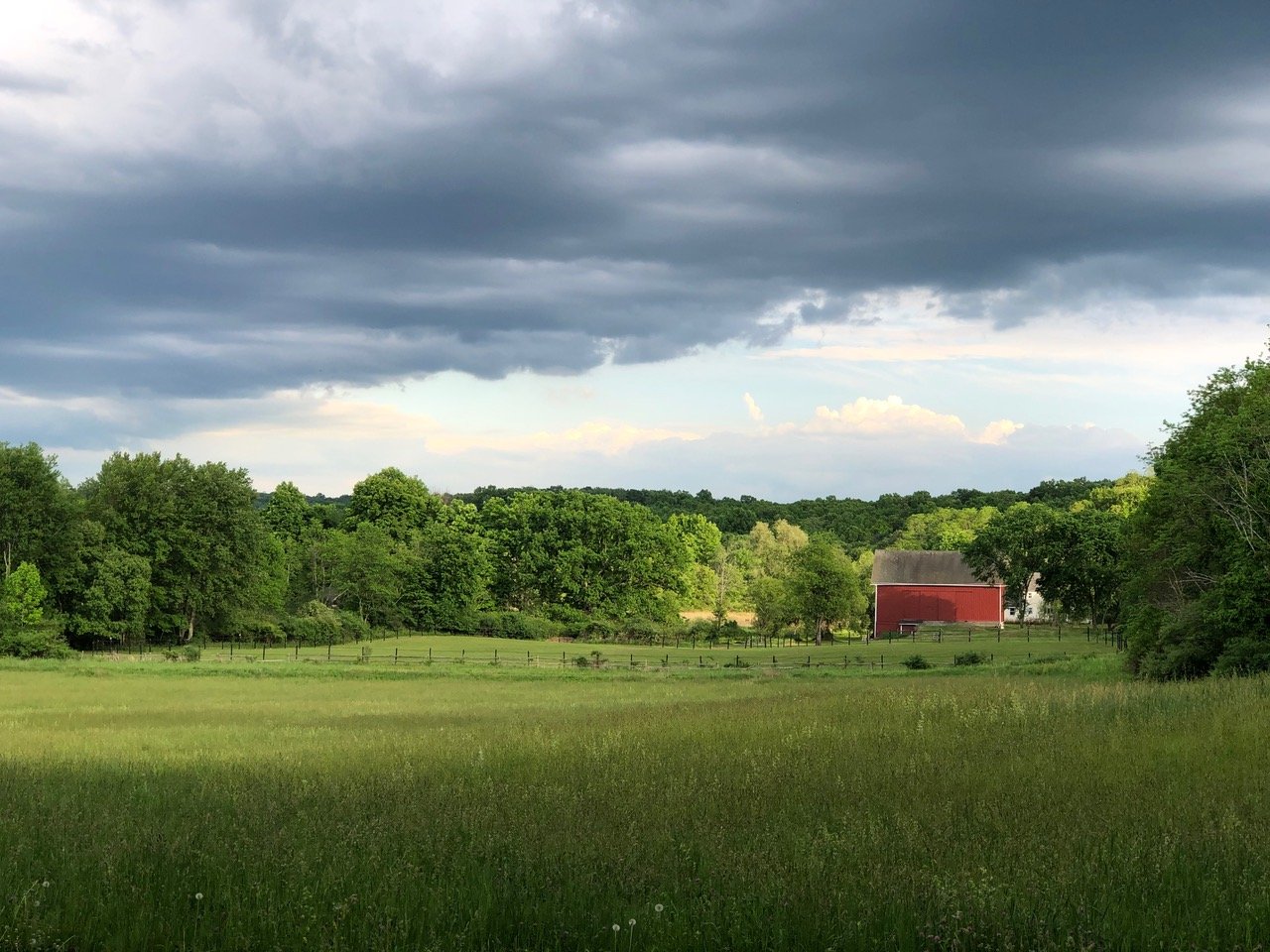
History of the Town of Clinton CAC
by Norene Coller
The Clinton Town Board created the Conservation Advisory Council (CAC) in 1974 to advise the Town on matters relating to the environment. The CAC began holding regular public meetings in 1977, mostly on a monthly basis.
Early in its history the CAC recognized that all Town residents rely on groundwater wells for safe drinking water and use septic systems to dispose of human waste. Thus the protection of groundwater aquifers and aquifer recharge zones is of key importance—as is the protection of floodplains, wetlands, and intermittent streams.
Beginning with the passage of the first Zoning Law in 1969, the Town has required large lots—a minimum of 3–5 acres in most of the Town. This requirement, which was strongly recommended by the consultants who wrote the first Zoning Law, was intended to protect the drinking water. The CAC and the Town have developed maps of environmental features that indicate water resources and connecting groundwater aquifers.
The CAC has worked with the Dutchess County Environmental Management Council and consultants to protect water and wildlife habitats by obtaining grants to gather information about the environment of the Town and wildlife habitats. Major research on water resources (completed in 2006) resulted in a Town law requiring the protection of streams, ponds, aquifers, and groundwater recharge areas. Vernal or woodland pools are also significant wildlife habitats and should be protected.
Hudsonia conducted a detailed study of wildlife habitats (also completed in 2006) that indicated the presence of rare wildlife species. This research was used by the Town Board to pass a water protection law in 2008, requiring permits for development in areas connected to water resources. In addition, a Town law was passed mandating the CAC to make recommendations to the Planning Board on proposals for development in areas of rare wildlife habitats.
In recent years the CAC and the Town Board have worked together to educate Town residents about the importance of protecting natural resources and wildlife habitats. The CAC has created a Nature Trail near Town Hall, and has also developed materials for new residents to inform them about the source of our water and how to protect this important resource.
Historical Timeline of Important CAC Accomplishments
2008: The Town Board passed the Water Protection Zoning Amendment, which was developed by Norene Coller and other CAC members working in collaboration with members of the public. Details can be found in Section 250–78 of the Town’s Zoning Code.
2010: The Town Board adopted the Farmland Protection Plan. Committee members included Town Supervisor Jeff Burns, CAC members Norene Coller and Bill Relyea, and six members of the public.
2012: The Town Board adopted the Open Space Protection Plan. Committee members included Town Supervisor Jeff Burns, CAC members Norene Coller and Bill Relyea, and five members of the public.
2012: Through grants via the CAC, Hudsonia was hired to assess the biodiversity in the Town. The recommendations of this report would be included in the Comprehensive Plan.
2012: The Comprehensive Plan was completed. The thirteen-member committee included CAC members Jack Cleary, Norene Coller, William Martin, and Andy Papp.
2013: Hudsonia presented the Biodiversity Plan to the Town Board. The Town Board adopted the Comprehensive Plan on April 9.
2014–2018: The Zoning Revision Committee met during this time to implement the recommendations put forward by the Comprehensive Plan. Jen Cavanaugh and Barbara Mansell represented the CAC.
2017: The Town Board signed the Climate Smart Pledge. It pledged to reduce greenhouse gas emissions and adapt to a changing climate to become categorized as a Clean Energy Community.
2021: The Town Board adopted the Pollinator Pathway project for the CAC.
2021: NYSERDA awarded the Town of Clinton with the Clean Energy Communities certification leading to the creation of a Climate Smart Task Force. Its eleven-member committee includes CAC members Joe Phelan (chair), Jean McAvoy, and Jacob Straus.